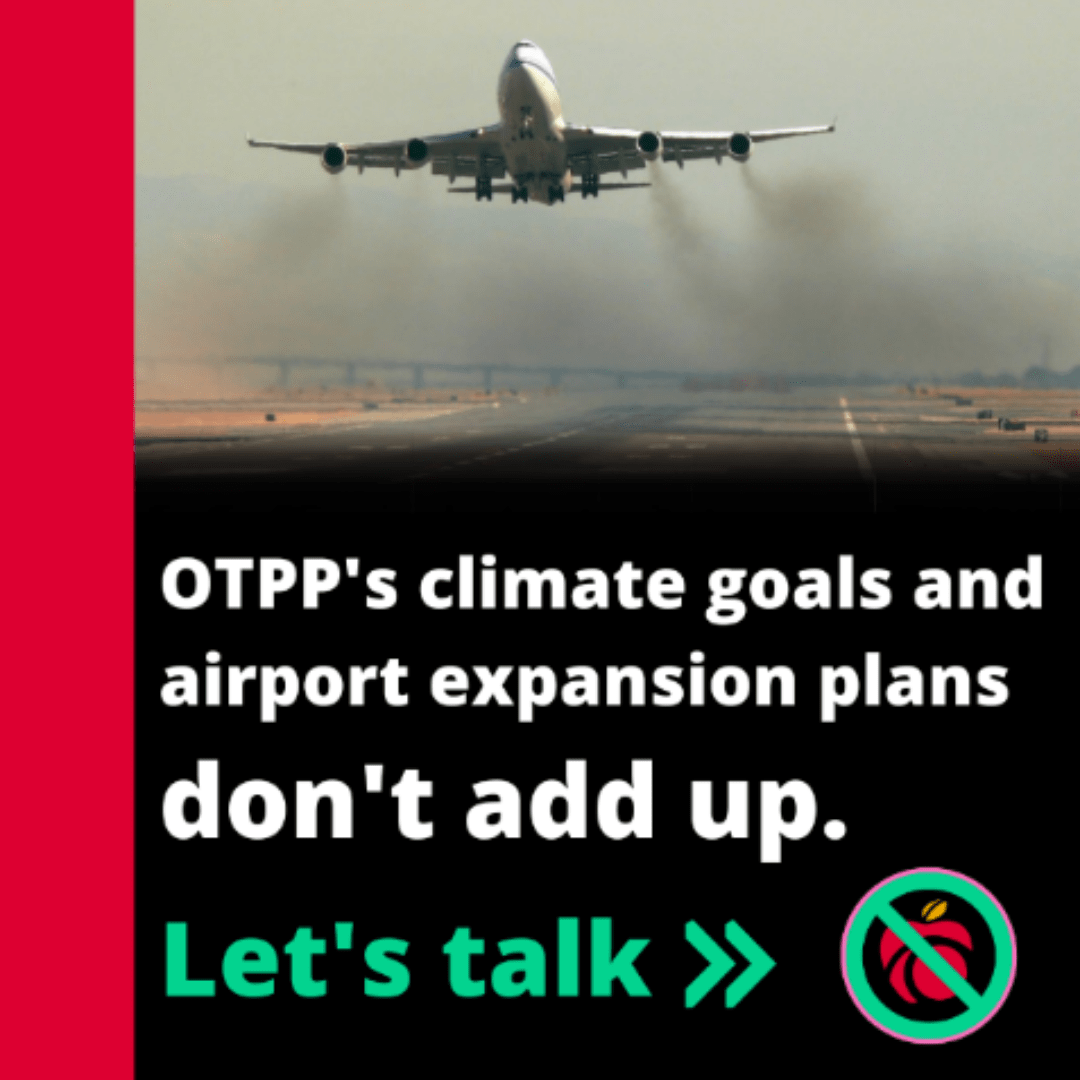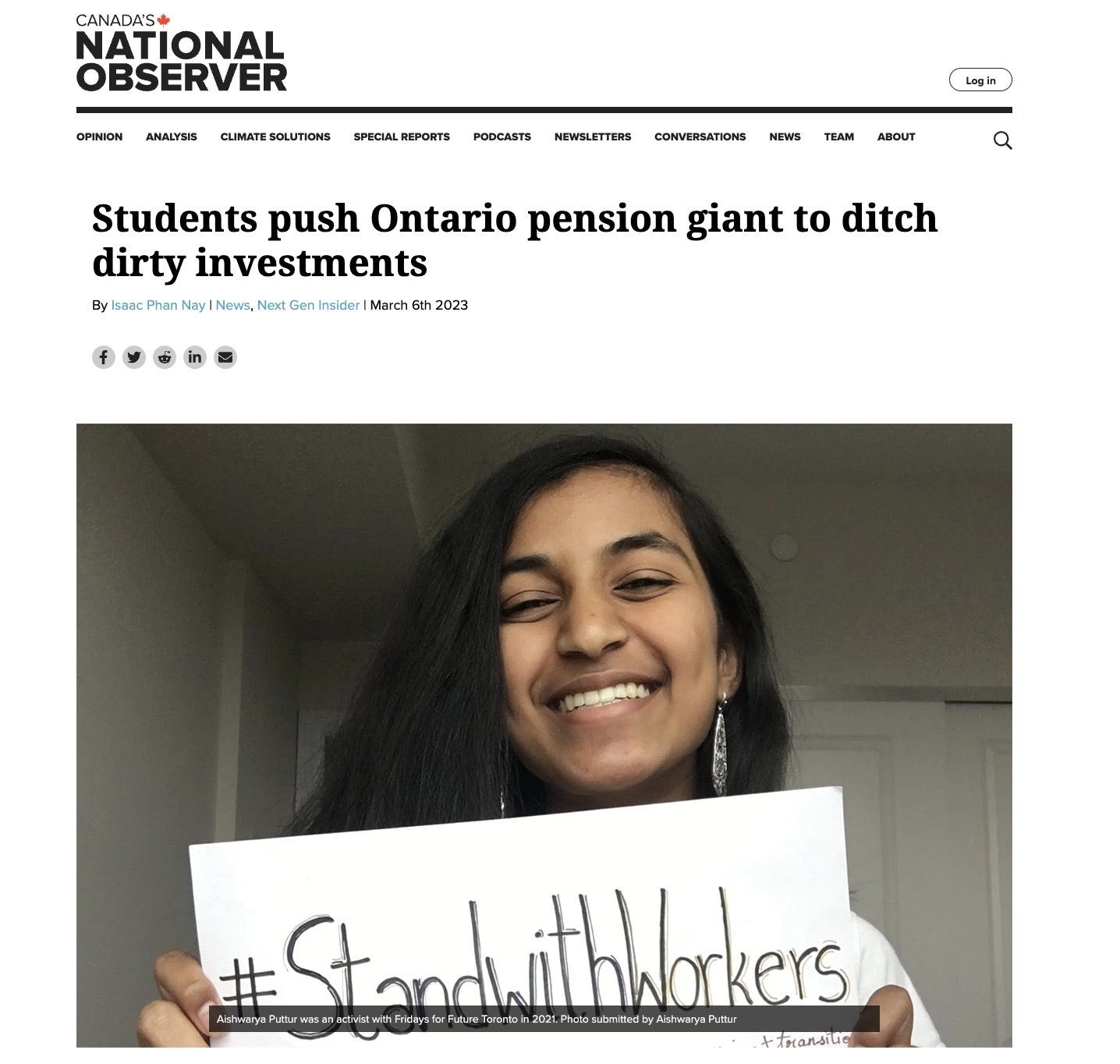Grassroots to boardrooms: Climate activists diversify tactics to challenge aviation's growth
Why the industry must demonstrate meaningful decarbonisation efforts and decouple growth from emissions.
Summary
A Dutch court has ruled against KLM for "misleading and illegal" advertisements in their 'Fly Responsibly' campaign.
Environmental activists are increasingly accusing airlines of greenwashing and aim to position the aviation industry as a social ill requiring strict regulation — like tobacco.
Climate activism tactics are diversifying, with a new focus on discouraging investment in the aviation sector by emphasising reputational risks.
The SOFAX coalition targeted the Ontario Teachers Pension Plan (OTPP) to spotlight ethical dilemmas posed by airport investments, using targeted ads, personalised bouquets, and a grassroots video project.
To address these challenges, the industry must demonstrate meaningful decarbonisation efforts, decouple growth from emissions, and engage in authentic storytelling to communicate effectively.

The KLM case - another warning to the industry
The court case against KLM, initiated by a coalition of climate groups, has concluded with a Dutch court finding the airline at fault. The ruling emphasised that certain advertisements from KLM's 2019/2020 'Fly Responsibly' campaign were misleading and, therefore, broke the law.
For example, one of the ads featured a child on a swing over green fields and blue skies with the tagline ‘Join us in creating a more sustainable future.’
Although KLM wasn't required to stop advertising or issue corrections, as the most controversial advertisements regarding carbon offsetting had already been withdrawn, the verdict's impact is largely symbolic and reputational. It signals the broader aviation industry to avoid overly simplistic and optimistic sustainability messages in their marketing efforts.
Over the past year, environmental activists have accused several airlines, including KLM, Etihad, Lufthansa, and Austrian Airlines, of greenwashing.
This issue was a central topic at the inaugural ACI World - Airports Council International ESG Global Framework Validation Forum. During a talk, I highlighted that climate groups aim to position the aviation industry alongside the tobacco industry today — as a social ill requiring strict regulation.
Critics argue that a significant portion of flying is a case of 'luxury emissions,' where 1% of people generate half of the sector's emissions. This demographic focus and a perceived emphasis on expansion over genuine decarbonisation efforts fuel the argument for stricter advertising standards.
Targeting aviation investors
It is crucial to recognise that climate activism tactics are diversifying. There is a new emphasis on discouraging investment in the aviation sector by highlighting the reputational risks associated with airport ownership.
Consider the SOFAX coalition's campaign targeting the Ontario Teachers Pension Plan (OTPP), a major stakeholder in several European airports. The coalition engaged directly with OTPP's staff and beneficiaries to spotlight the ethical dilemmas posed by such investments.
The first step in the SOFAX campaign was to pay for targeted LinkedIn ads aimed at individual OTPP employees, seeking to uncover internal dissent regarding the pension plan's investments in airports.
Despite some debate about whether money should be given to LinkedIn, the coalition ultimately decided that the ability to reach OTPP staff outweighed any misgivings about spending money with a US tech giant.
The group wanted this employee outreach campaign to cause "discomfort" among senior managers, so they followed up by sending personalised bouquets to their London and Toronto offices, inviting them to open a dialogue about their controversial investments, though it's unclear if any managers took SOFAX up on the offer.
To further their campaign, SOFAX then created a grassroots video project involving residents from surrounding the airports, discussing the effects of noise and pollution.
The video aimed to galvanise the Ontario teachers, an audience more likely to be unionised and interested in social and climate issues.
Despite its grassroots aesthetic, taking five minutes to get to the call to action, this video is part of a broader, more sophisticated campaign that could influence OTPP's future investment strategies.
The Canadian media has already reported on some pressure from within Ontario on OTPP to divest from airports that are looking to expand, highlighting the potential impact of campaigns like this.
How should aviation respond?
To address these challenges, the aviation industry must demonstrate meaningful decarbonisation efforts, decouple growth from emissions, and engage credible third-party sources to assess targets.
The industry also needs to shift from fact-free, feel-good advertising slogans to authentic storytelling, showcasing their actual actions. Last year, we contrasted the different approaches of United Airlines and Lufthansa to give an example of how this should be done.
In our book ‘Sustainability in the Air’, we’ve also set out an eight-point manifesto that looks at covers approaches such as the ‘polluter pays’ principle, potentially having a climate surcharge for frequent flyers, and the importance of decoupling growth from emissions.
Without course correction, as Rome Airport boss Marco Troncone has pointed out, there will be zero tolerance in the future for polluting industries like ours, especially without a credible promise to cut emissions.
Failure to do so, as ex-Royal Schiphol Airports boss Ruud Sondag has warned, may result in losing the industry's license to operate in the long run.







